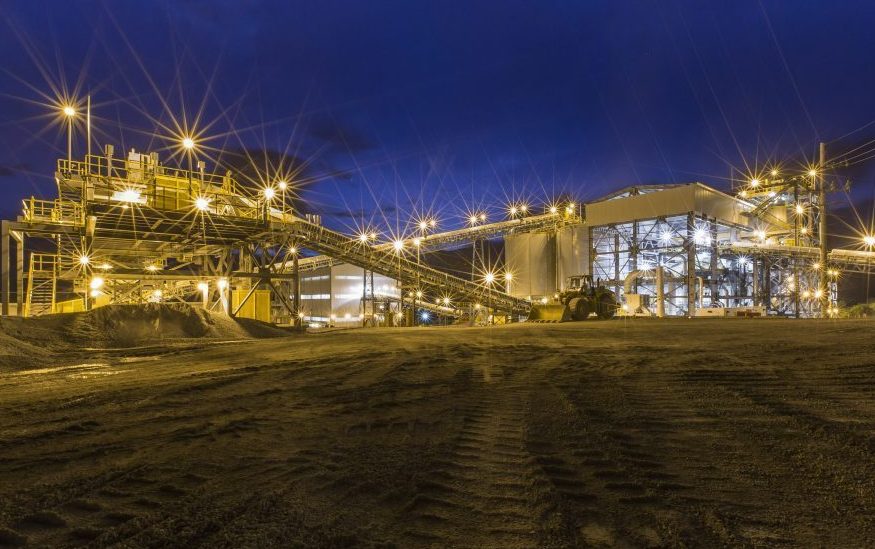So why is the Escobal silver mine, one of the world’s largest, idle? In 2014, when the Canadian-owned Tahoe Resources Inc. started production, corporate touts projected a two-decade bonanza. Now they’re facing a shuttered mine, protesters, and a lode of legal troubles.
To hear tell from the mine’s backers, including U.S. legislators in a letter to President Jimmy Morales and Guatemalan industrialists, Escobal is the victim of choleric political activists, and even “criminal groups,” as one company official told me, who are using the courts as a fig leaf to thwart foreign investors. Led by the militant indigenous rights group CALAS, opponents claimed that the government failed to consult them before Tahoe subsidiary Minera San Rafael S.A. broke ground in San Rafael Las Flores, near Guatemala City. They demanded the top court force the company to stop operations. The issue ricocheted from bench to bench until last July, when the Constitutional Court suspended the mine’s operating license.
The conflict is far from over, but it’s a glimpse into a shifting moment in Latin American democracy: Increasingly, newly empowered civil society groups are raising the flag of resource nationalism to press their claims for a greater say in the national conversation and a larger share of wealth.
Fueling the quarrel is a bump in the commodities cycle, including gold and silver, which has sent industrial prospectors to new frontiers in search of minerals and energy, and on a collision course with indigenous groups who live where the reserves are located.
Latin America recorded 246 conflicts in mining regions in 2016, more than double the number in 2010, according to the Observatory of Mining Conflicts in Latin America. Such disputes are likely to rise. Last year, El Salvador’s legislature banned outright metals mining. Costa Rica has outlawed open-pit gold mining, and the highest courts in Colombia and Chile have suspended metals mines over environmental worries.
“We want to control economic activity on our land,” Nara Soares, head of the Indigenous Organizations of the Brazilian Amazon, told me. “Guatemala’s fight is our fight, too.”
Mining moguls and their discontented opponents both agree on one thing: Conflicts are bound to worsen in countries where governing institutions are weak and the rule of law is tenuous. Consider Tahoe, which took its cues from the Guatemalan energy and mines ministry, which in turn was responsible for consulting with local groups and had assured the miner no indigenous communities were in harm’s way. Leaders of the Xinka, a local indigenous group, demurred. Backed by grassroots legal activists, they got the high court to lift the company’s license until new consultations were carried out. “We did everything by the book. We stuck to the law,” Tahoe general counsel and executive vice president for corporate affairs, Edie Hofmeister, told me in an interview. “Unfortunately, in Guatemala the rule of law is not as strong as it could be.”
One problem is that Guatemala has yet to regulate the international convention (ILO 169) that mandates signatory nations to hear out indigenous communities on projects that might affect them.
That lacuna leaves miners and host communities in the dark on how to strike a fair pact.
It’s no help that that two former Guatemalan energy and mining ministers were ensnarled in serial corruption scandals, which have seen two presidents jailed. Guatemala ranks a lowly 143 out of 180 nations on Transparency International’s most recent corruption perceptions index.
That’s troubling for this emerging mining contender, which recently won the blessings of the Extractive Industries Transparency Initiative (EITI), a marquee anti-corruption effort for the global mining and energy industry. “Less than a year after Guatemala was certified as EITI compliant, essentially every high-ranking government official that had overseen the initiative had been accused of corruption,” concluded Brandon Brockmyer, a former consultant for the initiative, in a review of nine national transparency pacts, including Guatemala’s.
The transparency initiative survived, but Guatemala weakened its clout by relegating civil society participants to mere guests at the negotiation table. “The participants in the process are supposed to be equal partners, but that hasn’t happened,” Brockmyer told me. “That’s problematic.”
International mining companies are learning, as Tahoe has, that when the rules of engagement are murky, they may have to do more than toe the legal line to ensure good governance and win the community’s good graces. “It is in this spirit that Tahoe wishes to clarify and specifically acknowledge the presence and importance of the indigenous peoples located in the communities near Escobal, particularly the Xinka,” the company said in a release on Feb. 13.
Juan Carlos Tefel, head of the Guatemalan industrial chamber, agrees. “Companies now realize they need to get along with a community and spread prosperity to a region,” he told me. “The problem is, not a single mining project is going forward at the moment. Not a single wind farm or solar project is being considered.”
Indeed, one of the dangers of such dysfunctions is that the key conversations over how societies can best turn their raw resources into national wealth become shouting matches in which everybody loses. “Right now it’s the mine. Tomorrow it could be the sugar mill or a factory,” Tefel said.
A much-cited fiscal study in Guatemala showed that in 2010, although industrial mining kicked in less than 2 percent of gross domestic product, 78 percent of mining towns reported social conflicts that year. “Is this the kind of development we want?” Otto Haroldo Cu, then president of Guatemala’s National Transparency Observatory, asked the EITI.
With its signature silver mine dark, a quarter of its miners recently fired, and silence from Guatemala’s highest court, Tahoe might well pose the same question.
This column does not necessarily reflect the opinion of the editorial board or Bloomberg LP and its owners.





Comments